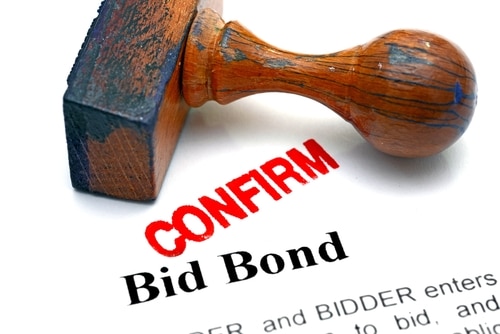Bid Bonds
Contractor Surety Bonds
Price: $125
- A South Carolina bid bond is a legal document assures a project owner that the bidder will fulfill the contract if they win. It helps protect the project owner from financial losses caused by a bidder’s failure to honor the agreement.
To purchase your Obtain a Bid Bond in South Carolina in 2024 simply click on the "Buy Now" button. You will then be guided through a brief set of questions. After which you'll pay online and sign using DocuSign. Your new surety bond will be signed and sealed as a full-color PDF document for printing.
Securing a Obtain a Bid Bond in South Carolina in 2024 surety bond is a commitment by principals to adhere to the stipulations of contractual and legal obligations.
Note: If the bond requires underwriting, it may take up to 24 hours.




